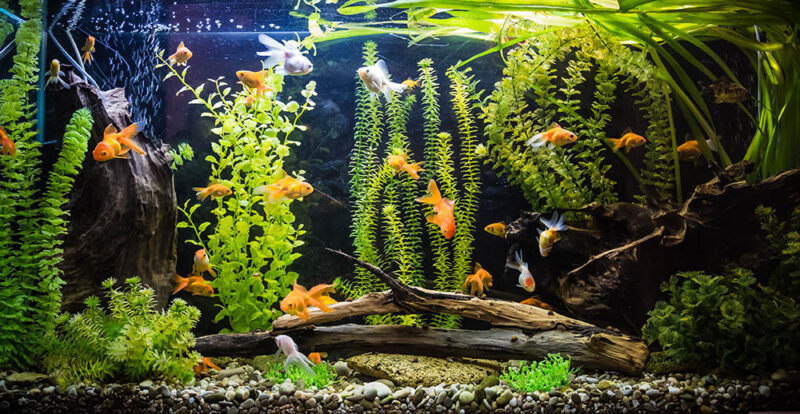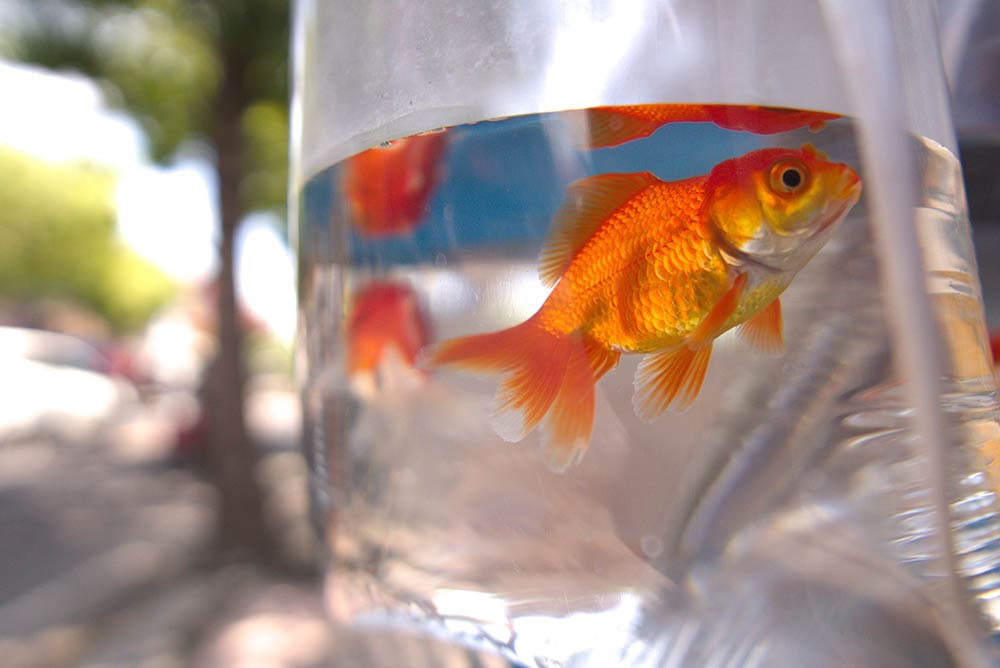
Fish are intelligent and fascinating, and most can outlive many other types of pets. This likely means your fish will be in your life for a while, and they will be able to recognize you as their owner when they beg for food.
Pet fish are in their own underwater world, though many owners still form a bond with them. Losing a pet fish is heartbreaking and sad, but there are many special ways that you can cherish your deceased companion and make memorable artwork and creative burials for them.
Coming to Terms
Fish get ill quite easily, and most treatments for fatal illnesses are not successful. It is difficult to watch your fish get worse as the illness progresses. It is common to feel helpless in such a situation, as there are limited things you can do when your fish is suffering from certain pathogens or infections. When they pass, it is usually hard to come to terms with.
This article will help you learn techniques to cope with the loss of your pet fish and inform you of different types of burials you can do to preserve them in your life.
Why Did Your Fish Die?
Different types of pets have different lifespans. Goldfish can live anywhere between 5 and 18 years, whereas betta fish usually live up to 3 years. The type of fish in your aquarium will have a varying life expectancy, and some will pass sooner than others.
Fish are prone to a variety of illnesses even before they enter your tank. If you do not quarantine new fish for several weeks before you add them to the main tank, they pose a risk of passing pathogens that will make the other fish in the aquarium sick. This can be a problem, as fish will usually only show signs of illness when the illness has already progressed. Treating your fish according to their clinical signs is the best option in this case. However, many treatments will not be able to save your fish, and they will eventually succumb to their illness.
Another reason fish pass away early is that they are kept in unsuitable conditions. Small aquariums, no filters or air stones, and uncycled tanks are among the top reasons that many fish die when people first get them. Extensive research should be done on each fish you get so you can ensure that you are providing them with a species-appropriate environment.
A silent killer in many aquariums is the water quality. Elevated levels of ammonia, nitrite, or nitrate are toxic to fish and can kill them within hours. This makes it important to do regular water testing and change the water frequently. Chlorine in tap water can kill fish if it is not treated with an aquatic dechlorinate according to the dosages on the label.
The 5 Techniques to Cope With the Loss of a Pet Fish
1. Artwork
Even if you do not have the best artistic skills, creating a drawing or painting of the deceased fish can help you to have a constant visual reminder of their beauty and features. Keeping the artwork up on display is a special way to immortalize them.

2. Discussion With an Understanding Friend or Family Member
Talking to someone about your favorite things about the deceased fish and what quirky behaviors they had can help you to share the bond you had with your pet fish. It can be reassuring to have another person understand how you are feeling after the loss.
3. Journaling

If you are not the type of person who wants to tell others about how you are feeling after your fish has passed, you could write down your feelings in a journal. You will be able to freely express your thoughts without feeling judged. It can also help to declutter your mind.
4. Fish Support Groups or Forums
Joining a community of fish keepers can make the experience less challenging. Other fish keepers have most likely gone through difficult fish deaths and can sympathize and relate to your experience. You can also share your favorite pictures of your fish and tell the community details about them.
5. Exercise and Other Activities

Instead of being cooped up in your room or isolating yourself, try various activities that you love. Exercise raises endorphins, which can boost your mood. Other therapeutic activities are gardening, doing carpentry, going shopping, taking an outing with friends, helping out at a local animal shelter, or even taking a self-care day and getting your hair or nails done.
 Creative Burials for Deceased Fish
Creative Burials for Deceased Fish
Planning what to do with the fish’s body after they pass can be tricky. Fortunately, there are several ways to create a memorable burial for your beloved fish.
- Author’s note: Never flush a fish down the toilet or place them into indigenous waterways. This is a hazard for wild species that will be exposed to captive aquarium pathogens.

Dealing With Guilt
Sometimes when a fish passes, it is normal to feel guilty about the situation. You may have been too busy and forgotten to do a water change, or maybe you forgot the switch the heater back on after a power outage. It is important to understand that these are mistakes, and you should take time to forgive yourself. Remember, fishkeeping is a long journey full of learning opportunities. It is okay to feel guilty, but do not be too harsh on yourself, as many people have made the same mistakes that you have.
When to Get Another Fish
Getting a new fish right away may not be something everyone will consider, but many people deal with loss differently. Some people may prefer to get a new fish a few days later. There is nothing wrong with this, and it can be a therapeutic way to give another fish a loving home.
It is important to make sure no leftover pathogens are in the tank that the fish passed in. It should be sterilized and cycled before a new fish is placed inside. This does not apply to community tanks where multiple fish live, but the new fish should still be quarantined.
For some people, getting a new fish right away is not a good option. You should wait till you are ready to own another fish again and not feel like you are replacing the deceased fish.
Final Words
As sad as it is to lose a pet fish, it is bound to happen to all fishkeepers. Even the experts deal with fish deaths regularly. However, by providing them with a good home, all the appropriate equipment, and a large tank, you can rest assured knowing that you gave the fish the best possible life.
Featured Image Credit: Nature and Life, Shutterstock








